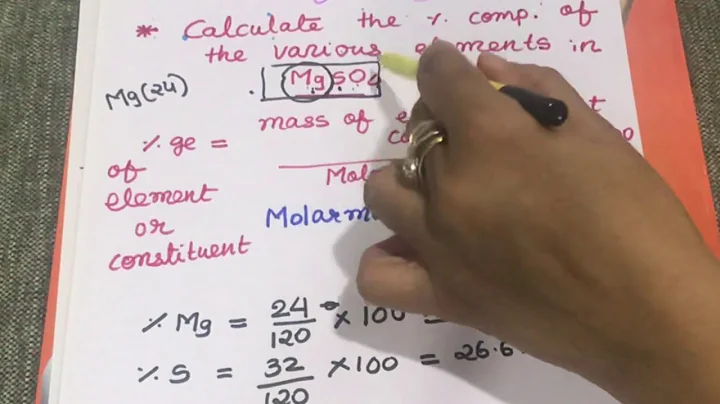How to calculate the percentage of each element in a list?
Solution 1
You can use count(i) to determine to number of occurrences of the numbers 1-4 and divide it by 5 to obtain the percentage:
sequence=list(zip(*['123', '134', '234', '214', '223']))
percentages=[]
for x in sequence:
t=list(x)
temp=[t.count(str(i))/len(x) for i in range(1,5)] #work out the percentage of each number
percentages.append(temp) #add percentages to list
Or, as one list comprehension:
percentages=[[list(x).count(str(i))/len(x) for i in range(1,5)]for x in sequence]
Output:
[[0.4, 0.6, 0.0, 0.0], [0.2, 0.4, 0.4, 0.0], [0.0, 0.0, 0.4, 0.6]]
Solution 2
starting from your approach, you could do the rest with a Counter
from collections import Counter
for item in zip(*['123', '134', '234', '214', '223']):
c = Counter(item)
total = sum(c.values())
percent = {key: value/total for key, value in c.items()}
print(percent)
# convert to list
percent_list = [percent.get(str(i), 0.0) for i in range(5)]
print(percent_list)
which prints
{'2': 0.6, '1': 0.4}
[0.0, 0.4, 0.6, 0.0, 0.0]
{'2': 0.4, '3': 0.4, '1': 0.2}
[0.0, 0.2, 0.4, 0.4, 0.0]
{'4': 0.6, '3': 0.4}
[0.0, 0.0, 0.0, 0.4, 0.6]
Solution 3
You could start by creating the zipped list as you did:
zipped = zip(*l)
then map an itertools.Counter to it as to get the counts of each item in the results from zip:
counts = map(Counter, zipped)
and then go through it, creating a list out of their counts divided by their sizes:
res = [[c[i]/sum(c.values()) for i in '1234'] for c in counts]
print(res)
[[0.4, 0.6, 0.0, 0.0], [0.2, 0.4, 0.4, 0.0], [0.0, 0.0, 0.4, 0.6]]
If you are a one-liner kind of person, mush the first two in the comprehension to get this in one line:
res = [[c[i]/sum(c.values()) for i in '1234'] for c in map(Counter, zip(*l))]
additionally, as noted in a comment, if you don't know the elements ahead of time, sorted(set(''.join(l))) could replace '1234'.
Related videos on Youtube
Jassy.W
Updated on September 26, 2022Comments
-
Jassy.W over 1 year
I have this list with 5 sequence of numbers:
['123', '134', '234', '214', '223']and I want to obtain the percentage of each number
1, 2, 3, 4in theithposition of each sequence of numbers. For example, the numbers at0thposition of this5sequences of numbers are1 1 2 2 2, then I need to calculate the percentage of1, 2, 3, 4in this sequence of numbers and return the percentage as0thelement of a new list.['123', '134', '234', '214', '223'] 0th position: 1 1 2 2 2 the percentage of 1,2,3,4 are respectively: [0.4, 0.6, 0.0, 0.0] 1th position: 2 3 3 1 2 the percentage of 1,2,3,4 are respectively: [0.2, 0.4, 0.4, 0.0] 2th position: 3 4 4 4 3 the percentage of 1,2,3,4 are respectively: [0.0, 0.0, 0.4, 0.6]]Then desired result is to return:
[[0.4, 0.6, 0.0, 0.0], [0.2, 0.4, 0.4, 0.0], [0.0, 0.0, 0.4, 0.6]]My attempt so far:
list(zip(*['123', '134', '234', '214', '223']))Result:
[('1', '1', '2', '2', '2'), ('2', '3', '3', '1', '2'), ('3', '4', '4', '4', '3')]But I got stuck here, then I don't know how to calculate the percentage of the element of each numbers of
1, 2, 3, 4, then obtain the desired result. Any suggestion is appreciated! -
BallpointBen over 7 yearsIf you don't know the elements ahead of time,
set(''.join(l))should replace'1234'. -
BallpointBen over 7 yearsToo much hard-coding.
/5should be replaced by/len(x), andrange(1,5)should be replaced byset(''.join(l))(and you can then replacestr(i)with justi). -
Jassy.W over 7 years@Jim Fasarakis-Hilliard Thanks for your solution, but I don't very understand this syntax
[[c[i]/sum(c.values()) for i in '1234'] for c in map(Counter, zip(*l))]because I am not very familiar withmapfunction. I checked and got to know that it may mean to apply the functionCounteronzip(*l)), then I thought why not directly useCounter(zip(*l)), but i foundCounter(zip(*l))do not work. Then I checked and foundmap(Counter, zip(*l))returns<map object at 0x033C1930>. I don't know what it means. Could you explain for me whymap(Counter, zip(*l))works? Thank you.









